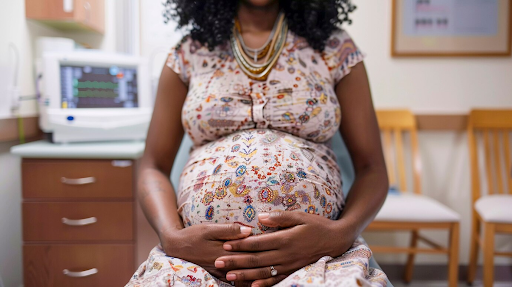For generations, women married early, stayed at home and had babies. But today’s reality is quite different — women are pursuing careers, marrying later and postponing motherhood. More and more adolescents are smoking, the incidence of sexually transmitted infections has been steadily rising, particularly in women aged 15-21, and unhealthy extremes in body weight are now more common than ever. All these impact on pregnancy and parenthood.
As a woman, it is quite likely that you became aware and concerned about your reproductive health when you become sexually active — to prevent pregnancy. But the choices made as teens and into adulthood can have a major impact on a woman’s ability to get pregnant.
Whether you’re thinking about having children now or later in the future now is the best time to talk about your options as a potential parent. Even if you’re in your 20s and don’t think pregnancy and childbearing should be on your radar just yet, you have nothing to lose but much to gain.
For instance, if you are more likely to develop uterine fibroids or you are just concerned about uterine fibroids, you can start the conversation at your next annual check-up by asking a simple question like: If I am diagnosed with fibroids, what does my future fertility look like? This is an important question. Uterine fibroids are very common in all women but some women are more likely to have multi-fibroids or big fibroids and fibroids can affect fertility.
If you have fertility problems, you may never even know it until you are trying to have a baby. Oftentimes, infertility issues don’t have symptoms. So whether you’re actively trying to have children or just planning to in the future, it’s good to know if anything you or your partner are doing might reduce your chances. There are risk factors for infertility and while you can’t control everything that might affect your fertility, there are some things you can.
A man and a woman are equally at risk for fertility problems. In about one-third of cases, both partners have issues, or doctors can’t find the cause. Over time, it has come to be known that the factors that affect a couple’s ability to have a baby include age, lifestyle, weight, etc.
Being a woman, as you age, the number of viable eggs that you have reduces making it harder for you to get pregnant as from the mid-30s. By 40, your chances of getting pregnant drop and by age 45, it’s just 15 percent. Your spouse is also less fertile after age 40.
Obesity accounts for six percent of all female infertility and, on the flip side, low body weight accounts for another six percent. So, while seeking medical help from a reproductive specialist, evaluate your body weight, and that of your partner. A balanced diet and exercise regimen might be just what the doctor ordered to help you get pregnant.
Maintaining an appropriate weight and participating in moderate exercise can help improve your menstrual regularity and overall health. Making time for moderate physical exercise, adequate sleep and leisure and enjoyment with your partner is a healthy step to take to lower stress levels and improve your mental and emotional health. This will help you deal better with the stress of infertility plus manage diet and weight.
If you are overweight, you would tend to have irregular periods and skip ovulation. But extreme underweight can also bring problems because your reproductive system can shut down completely. If your spouse is obese, he can have lower-quality sperm or erectile dysfunction. You should avoid alcohol when trying to conceive.
There are certain things that apply to you as a woman that could cause problems with your ovulation, hormones, or your reproductive organs. Conditions such as endometriosis, Fallopian tube disease, chronic disease like diabetes, high blood pressure, asthma, etc are risk factors. If you have experienced two or more miscarriages, history of irregular periods, early menopause (before age 40), uterine problems, etc.
Other factors are male-only, as well, and could affect sperm count, sperm health, or sperm delivery. These include a repaired hernia, testicles that haven’t descended, an inflamed or infected prostate, mumps, premature ejaculation, etc.
You can lower your risk. Your mental health is important, so avoid depression and stress because they affect the hormones that regulate your reproductive cycle. Women dealing with these issues may not ovulate normally and men may have a lower sperm count. Try to reduce the stress in your life before and while trying to become pregnant. Avoid unnecessary risks.
There may be factors in your everyday life that are reducing your chances of getting pregnant especially if your job involves toxic substances or hazards. Some dangers include pesticides, pollution, high temperatures, chemicals, or heavy electromagnetic or microwave emissions.
It is an established medical fact that fertility decreases with age. And, while today’s infertility treatments are very successful in helping women of all ages get pregnant, it is most likely that women in their 20s and early 30s will achieve pregnancy, with or without treatment.
The decision to have a baby, and determining the right time to start a family, is a highly personal choice. Women need to understand, however, that the biological clock is a very real issue and that the older the female partner, the more difficulty can be faced when trying to get pregnant.
It is still possible, though, that as a younger woman, you will experience difficulty getting pregnant and require specialized medical treatment to address other medical causes of infertility. As a younger patient, you have a better chance of getting pregnant with appropriate infertility therapy and while younger women and men often face more financial challenges affording fertility treatment access to fertility treatment remains desirable. .
There are a surprising number of lifestyle factors that can improve reproductive health and ability to have children. Simply reducing or abstaining from caffeine and alcohol can have a beneficial impact on ability to get pregnant.
You must have heard the reports that cigarette smoking can cause cancer and heart disease. But a lesser known health risk is that smoking can negatively affect your ability to have children. Practice safe sex. Sexually transmitted infections (STIs), such as chlamydia and gonorrhea, are leading causes of infertility. Both men and women should practice Safe Sex, since sexually transmitted diseases can lead to blockage of fallopian tubes, prostatitis and other problems that reduce fertility.
By taking control of lifestyle choices and becoming aware of the risk factors associated with certain behavior, women can help themselves to prevent numerous health problems and preserve their fertility for that special time in their lives when having a baby is the right choice. As mentioned earlier, infertility is not just a female disease, but affects men equally and men are not immune to the various social risk factors that affect women.
Aging doesn’t just affect a woman’s fertility. As men age, the quality of their sperm may decrease, making pregnancy more difficult. Drugs such as steroids, cigarettes, marijuana and alcohol can decrease sperm quality and production, and overall male reproductive function, critical to achieving conception. In addition, sexually transmitted infections also are a leading cause of male infertility, while prolonged exposure to high heat (hot tub) or certain chemicals (sometimes found in the work environment) and long hours of sitting or tight underclothes can also lead to male infertility.
Workplace hazards can contribute significantly to infertility. Common toxins such as heavy metals (lead, mercury) and other chemical compounds can be metabolized into secondary products which adversely affect the reproductive tract. Dioxin pollutants common to the paper industry have been shown to decrease fertility. If lifestyle adjustments have not resulted in a pregnancy for you and your partner, it may be time to consult a fertility specialist to determine if there are other causes for your difficulty conceiving.
Bottom line is this: Don’t wait until you are ready to have a baby to think about your fertility. Know what can affect your ability to get pregnant, how to avoid risk factors that can cause infertility and make smart decisions about your future.





